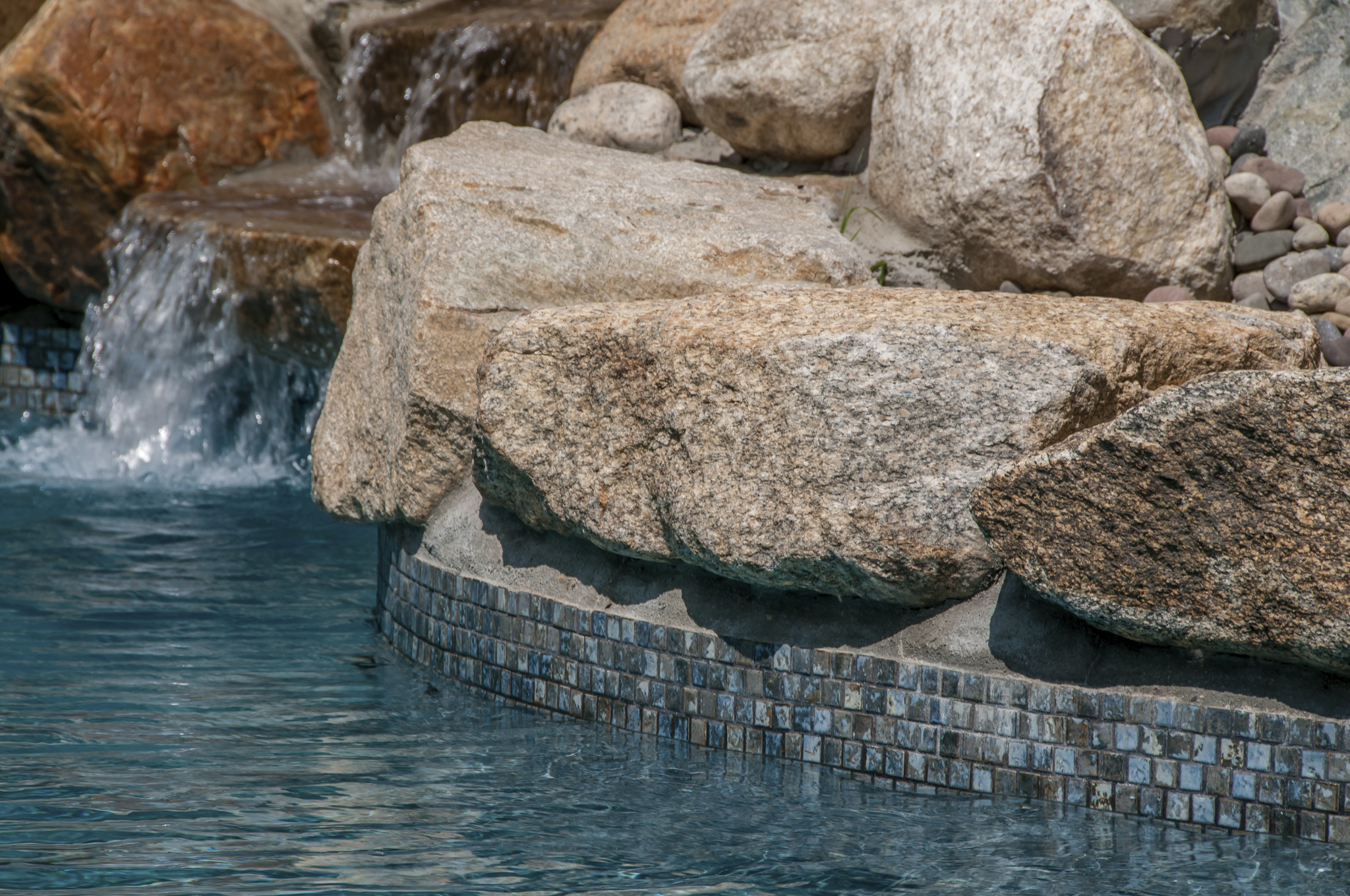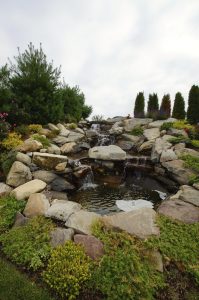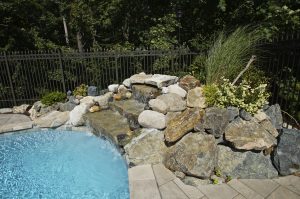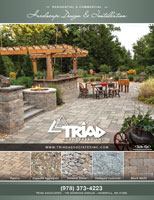
Natural stone has been a cornerstone of architecture, design, and construction for centuries. Its durability, timeless beauty, and unique characteristics make it a sought-after material for both interior and exterior applications, and it can elevate your home or business just as it has done for others for so long. From countertops to flooring and landscaping, various types of natural stone offer endless possibilities to enhance your space.
What Is Natural Stone?
Natural stone encompasses a variety of materials that are quarried directly from the earth and used in their raw or minimally processed form for construction and decorative purposes. Unlike synthetic materials, natural stone is prized for its organic beauty, with each piece showcasing unique patterns, colors, and textures created by nature over millions of years.
What Is Natural Stone Made Of?
Natural stone is primarily composed of minerals, including quartz, feldspar, mica, and calcite, among others. The specific mineral composition varies depending on the type of stone, which determines its hardness, color, and overall appearance. These stones are formed through geological processes such as volcanic activity, sedimentation, and metamorphism, giving rise to materials like marble, granite, limestone, and slate.
Natural Stone Variation
 One of the defining features of natural stone is its inherent variation. No two pieces are identical, as factors such as mineral composition, veining, and color distribution create unique patterns and textures. Different types of natural stone, such as marble, granite, or limestone, showcase this variation in distinct ways, making each project truly one-of-a-kind. This variation is highly valued by designers and homeowners, as it adds character and exclusivity to every project. However, it’s important to note that this natural inconsistency requires careful selection and planning to ensure a cohesive final look in large-scale applications.
One of the defining features of natural stone is its inherent variation. No two pieces are identical, as factors such as mineral composition, veining, and color distribution create unique patterns and textures. Different types of natural stone, such as marble, granite, or limestone, showcase this variation in distinct ways, making each project truly one-of-a-kind. This variation is highly valued by designers and homeowners, as it adds character and exclusivity to every project. However, it’s important to note that this natural inconsistency requires careful selection and planning to ensure a cohesive final look in large-scale applications.
Natural stone offers an unparalleled blend of beauty, functionality, and durability, making it a versatile choice for countless design projects, such as natural stone steps or coping. Its wide range of types and finishes allows for endless customization to suit any aesthetic or practical need.
Different Types of Natural Stone
There are many different types of natural stone, each offering distinct characteristics, aesthetics, and functional benefits. From the timeless elegance of marble to the rugged durability of slate, understanding the properties of each type can help you choose the perfect material for your project.
1. Marble Stone
Marble is renowned for its luxurious appearance, characterized by its smooth texture and intricate veining patterns. Often associated with classical architecture and high-end interiors, marble adds a touch of sophistication to any space.
Pros of Marble Stone
- Elegant Aesthetic: The unique veining and polished finish offer unmatched beauty.
- Heat Resistance: It’s ideal for fireplaces and countertops in low-heat applications.
- Versatile: It’s suitable for floors, walls, and decorative accents.
Cons of Marble Stone
- Porosity: Marble is susceptible to staining and etching from acidic substances.
- High Maintenance: The stone requires regular sealing and careful cleaning.
- Cost: Marble is generally more expensive than other natural stones.
Use of Marble Stone
Common uses of marble stone include kitchen countertops, bathroom vanities, flooring for any room, and decorative wall cladding. Marble elevates the look of any space.
Types of Marble Stone
There are three types of marble stone: Carrara marble, which is light gray with soft veining; Calacatta marble, which is bright white with bold veining; and Emperador marble, which is rich brown tones with white veins. Each offers a distinctive look for your space.
2. Granite Stone
Granite is one of many types of natural stone known for its strength and resistance to wear. Its granular appearance and wide range of colors make it a popular choice for both residential and commercial applications.
Pros of Granite Stone
- Durability: Granite is highly resistant to scratches, heat, and impact.
- Low Maintenance: It requires minimal upkeep when properly sealed.
- Variety: Granite is available in a wide range of colors and patterns.
Cons of Granite Stone
- Porosity: Granite needs periodic sealing to prevent staining.
- Cost: High-quality granite can be expensive.
Use of Granite Stone
Granite is most popularly used in kitchen and bathroom countertops, outdoor patios and walkways, and flooring in high-traffic areas.
Types of Granite Stone
Absolute black granite has a striking, uniform black finish. Bianco Romano granite is similar to marble, white with gray and gold veining. Baltic brown granite is dark brown with speckled patterns.
3. Limestone
Limestone is a sedimentary rock that offers a soft, neutral aesthetic with a natural, earthy feel. As one of the versatile types of natural stone, it is a popular choice for both indoor and outdoor applications.
Pros of Limestone
- Timeless Appeal: Limestone provides a warm, natural look.
- Versatile: Limestone works well for flooring, wall cladding, and outdoor spaces.
- Eco-Friendly: It is easily recyclable and sustainably sourced.
Cons of Limestone
- Softness: Limestone is prone to scratches and erosion over time.
- Porosity: It requires sealing to prevent water absorption and staining.
Use of Limestone
Limestone is often used for garden pathways, fireplace surrounds, and interior and exterior flooring. Different limestone variations can create different looks to meet your design aesthetic.
Types of Limestone
Know the different types of limestone to find the right fit for your project. Jerusalem limestone is light beige with subtle patterns. Blue limestone has gorgeous grayish-blue tones. Fossiliferous limestone contains visible fossil imprints, offering a unique look.
4. Slate Stone
Slate is a fine-grained metamorphic rock valued for its durability and natural slip resistance. As one of the popular types of natural stone, its layered composition gives it a unique texture and rustic charm.
Pros of Slate Stone
- Durability: Slate stone is resistant to water and wear, making it ideal for outdoor use.
- Slip Resistance: Its naturally rough surface provides excellent traction.
- Low Maintenance: Slate stone requires minimal upkeep.
Cons of Slate Stone
- Brittle Edges: Slate stone can chip or crack under heavy impact.
- Limited Color Range: It is mostly available in earthy tones.
Use of Slate Stone
Slate stone is most commonly used for roofing tiles, outdoor patios and walkways, and interior flooring. It makes each of these projects look much more sophisticated.
Types of Slate Stone
Slate stone comes in different colors. Black slate has a uniform and sleek appearance, while green slate has subtle greenish hues, and rustic slate has earthy tones with natural variations.
5. Quartz Stone
Quartz, while technically engineered, is often grouped with types of natural stone due to its composition of natural quartz crystals and resin. It offers durability and a uniform appearance, making it a favorite for contemporary designs with a modern aesthetic and versatility.
Pros of Quartz Stone
- Non-Porous: Quartz stone is resistant to staining and bacteria.
- Durability: It is also scratch and chip resistant.
- Wide Range of Colors: Quartz stone is available in vibrant and neutral tones.
Cons of Quartz Stone
- Heat Sensitivity: Quartz stone can discolor under high temperatures.
- Artificial Look: It lacks the natural variation of quarried stones.
Use of Quartz Stone
Kitchen and bathroom countertops, backsplashes, and indoor flooring are all elevated by the use of quartz stone.
Types of Quartz Stone
Pure white quartz is sleek and minimalist and may be one of the most popular types of quartz stone. Marble-like quartz mimics the look of marble, while granite-like quartz offers a more natural, granular appearance.
6. Travertine Stone
Travertine is a type of limestone formed near mineral springs and is recognized as one of the classic types of natural stone. Known for its warm, earthy tones and naturally pitted surface, its timeless elegance makes it a popular choice for classic designs.
Pros of Travertine
- Classic Look: Travertine has a natural beauty with soft textures.
- Slip Resistance: Its textured surface provides good traction.
- Eco-Friendly: Travertine is a sustainable and natural material.
Cons of Travertine
- Porosity: Travertine requires sealing to prevent staining and damage.
- Softness: It can scratch or chip easily.
Use of Travertine Stone
 Travertine is a good choice for pool decks, bathroom flooring, and outdoor walkways thanks to its benefits and its unique look.
Travertine is a good choice for pool decks, bathroom flooring, and outdoor walkways thanks to its benefits and its unique look.
Types of Travertine Stone
Choose the right type of travertine to get the look you want for your project. Tumbled travertine has softened edges that create a rustic look. Polished travertine has a smooth and glossy finish for a modern look. Chiseled travertine has rough edges for a classic appearance.
Common Finishes
Natural stone can be customized with various finishes to achieve different looks and functionalities. Each finish enhances the stone’s appearance and texture, making it suitable for specific applications, such as paver patios among many others. Some popular types of natural stone finishes include:
- Polished: A glossy, smooth finish that highlights the stone’s natural color and veining, ideal for countertops and indoor flooring.
- Honed: A matte, smooth finish with subdued colors, perfect for flooring and wall cladding.
- Tumbled: A weathered, rustic finish with softened edges, often used in outdoor spaces and decorative applications.
- Brushed: A slightly textured finish created by brushing the surface, suitable for slip-resistant flooring.
- Split-Face: A rough, uneven finish that emphasizes the stone’s natural texture, commonly used for feature walls.
Work With Triad Associates’ Natural Stone Experts
Choosing the right types of natural stone and finishes for your project can be overwhelming, but the experts at Triad Associates are here to help. With years of experience in natural stone selection, design, and installation, we ensure your vision comes to life with precision and care. Whether you’re upgrading your home or designing a commercial space, our team will guide you through every step of the process. Call us today to schedule a free consultation and begin designing your new space!
Contact Triad Associates today to schedule a consultation and explore the endless possibilities of natural stone for your next project!




